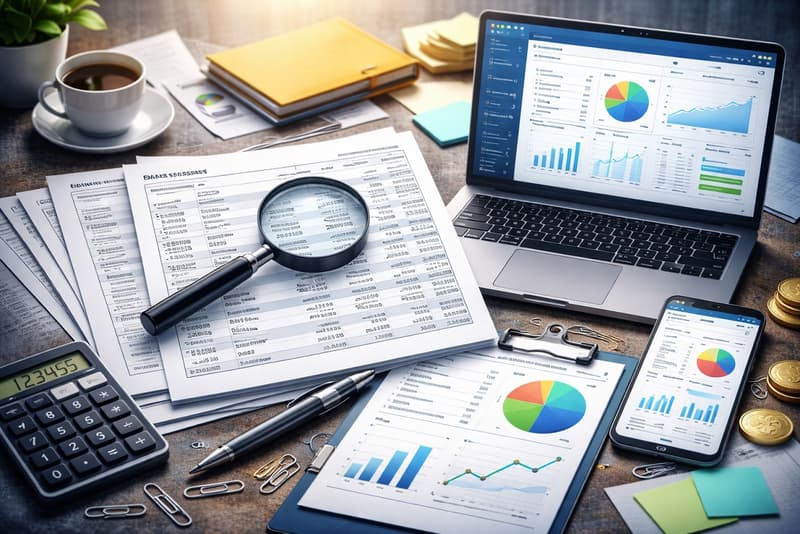
The rise of the tax technologist

By Russell Gammon, Chief Solutions Officer at Tax Systems
The new era of the digitalised tax industry is well on its way to fruition; Making Tax Digital (MTD) for VAT is in place, with Income Tax & Corporation Tax initiatives to follow. For an industry that has previously been cautious in embracing technology, the required digital transformation could be a major challenge.
To stay compliant with strict MTD regulations, and maintain an accurate picture of their tax situation, businesses must have their data ‘in order’. This means understanding it, knowing where the commonalities need to exist, and having seamless data flows between departments which have historically often operated autonomously.
While technology experts have become more common in the tax industry in recent years, there is a growing call for the hiring of experts with additional tax data skills to help navigate this new digital territory – a “Tax Technologist”. This is a senior data and technology expert with a wider remit than the tax data professional, therefore connecting two crucial parts of a tax department to add value to the business. Their overarching objective is to ensure that key stakeholders in the tax department have full visibility of the data they need, and that this data is always correct.
With a combination of collaborative skills and technical know-how, this new role will be critical in fusing the team and other business stakeholders to add value to the business, whatever its size or sector. By using software to automate and digitise tax-related tasks, tax technologists can help organisations reduce errors and improve accuracy, eliminating data silos and ensuring that systems, together with all related processes, are integrated and streamlined.
Meeting tax objectives in 2023
Just a few years back, tax technology wouldn’t even have registered on a CFO’s radar. Today it ranks high on the agenda and finance directors are scrambling to keep abreast of the demands to ensure compliance and increase business efficiency. With the huge numbers involved in enterprise tax filings, businesses are starting to take a more proactive and strategic approach to managing their tax.
New government initiatives are also driving tech investment, with speed, efficiency, and accuracy becoming key priorities. These include the MTD programme focusing on digital data to make more accurate tax calculations and the incoming global Base Erosion Profit Shifting 2.0 (more commonly referred to now as Pillar 2) initiative, which is designed to harmonise corporation tax on a global level. Businesses have become more alert to the importance of getting tax right the first time and on time – with strict penalties imposed for inaccurate or late filing.
All this combined has led board executives to realise that the role of the Tax Technologist is instrumental in ensuring compliance and transparency to future-proof their organisation in the evolving tax landscape.
Benefits of a tax technologist
There are some clear efficiency gains by hiring a tax technologist. The Tax Technologist will be tasked with getting to grips with the key frustrations and challenges confronting tax teams and ensuring that senior tax professionals can achieve some concrete goals. For instance, they could help cut the time taken to produce a corporate tax return by as much as 50%.
The Tax Technologist will hold responsibility for implementing new tax technologies, enhancing key processes and procedures and assuring the security of data. This consultative nature will initiate frequent conversations between them and the InfoSec and IT management teams. With their combination of strong IT and tax transformation skills, the Tax Technologist offers a holistic vision of how to bridge the gap between business, technology and innovation.
Key considerations for tech-first tax approach
Undoubtedly, organisations will need to ensure they are equipped with the right toolkit to ensure the success of the future of tax. But the right collaboration of tax and technology experts with finance decision-makers will enable organisations to better plan and forecast its business goals, with a deeper understanding of the tax impact of any decisions taken. In making some key considerations, business leaders can optimise their business environment for the Tax Technologist:
- Keep up with evolving tech – The right tools are vital so that businesses can embrace change, upgrade systems and build operational efficiency, despite tighter budgets and increasing workloads.
- Shifting to the cloud can be a breeze – By introducing flexible cloud-based or hybrid on-premise tax-specific solutions, companies reduce the burden on internal IT teams and only pay for what’s required. This allows tax technologists to focus on ensuring compliance and minimising risk.
- The importance of clean data – Organisations shouldn’t underestimate the importance of data quality, with the need for clean, consistent data across multiple siloes. Many businesses have over fifteen different tax-related systems in place when they only need five cloud-based, interconnected and best of breed.
- Recruiting / skilling-up – One way or the other, organisations of all sizes can bring in the skills for the Tax Technologist role. These data experts may be found in creating new roles or they may already exist within the finance/tax team and could be skilled-up for the role. In fact, the Chartered Institute of Taxation has launched specialist qualifications designed to get people up to speed with this field.
Conclusion
The pressure to automate more processes means that organisations of every size and industry are under pressure to unlock new potentials of technology solutions, achieving new efficiencies, and performing confidently and compliantly in the new digital tax environment.
Whilst adopting technology will address the legislative changes by providing automacy to functions, only the companies that fully embrace the new technology will successfully reap the benefits. Businesses that are ready and willing for change, and appoint a tax technologist, will mark a cultural shift in how they see the importance of both tax and technology, and how it can impact the entire business for the better.


